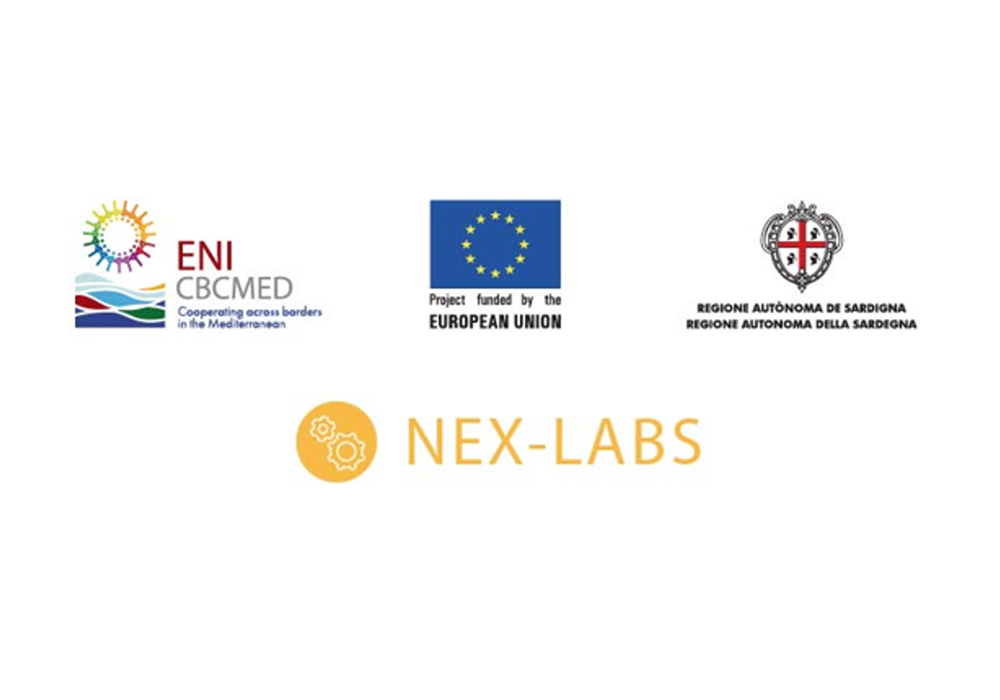iPARK – Royal Scientific Society is part of the newly launched NEX-LABS project, co-funded by the European Union under the ENI CBC Mediterranean Sea Basin Programme and has the ambitous goal to set up a long term regional policy of the Mediterranean Strategy for Sustainable Development..
The project kicked off officially in September 2020 and during its lifepan of 30 months aims to support implementation of clean technologies for sustainable and resilient increase of agri-food sector production based on a more efficient use of energy (renewable/solar solutions) and water (wastewater treatment, water harvesting or reuse solutions) in MPC region thanks to the contributions of ICT such as blockchain technology, Internet or the Things (IoT), Artificial Intelligence (AI), Machine Learning and Big Data.
Beyond MPC national or regional Water/Energy/Food (WEF) policy development programs, NEX-LABS will contribute to the regional policy development of the Mediterranean Strategy for Sustainable Development 2016-2025 and to the 2030 Sustainable Development Agenda through innovative integrated WEF+ICT technologies to face SDGs 2, 6&7 thanks to NDOLLs approach.
NEX-LABS targeted territories, characterized by water scarcity/irregular rainfall/population distribution, reflect agriculture as largest user of water (70-90%) while future global warming projections (≈2ºC) involve summer precipitation (-10/-30%) threatening water availability (-2/-15%) and agricultural productivity (-12/-40%). The latent conflict between energy efficiency (≈60%) and water production is also increasing energy footprint/m3 of water used to produce food. The predicted future shortfalls in Water/Energy/Food (WEF) requires a NEXUS approach.
NEX-LABS intends to contribute to the creation of a sustainable and resilient agrifood sector based on NEXUS driven Open Living Labs (NDOLL) approach, thus strengthening technology transfer, cooperation industry-academia, increasing commercialisation opportunities and innovation-driven growth. Throughout the project implementation, it is expected to reverse this trend and generate a mid- term impact through NDOLL approach to test, recommend and implement those integrated NEXUS technologies in the agri-food sector, complemented by products, services and programmes to boost linked businesses. NEX-LABS targets a plethora of stakeholders, including public institutions such as ministries and national agencies, research centers or universities, SMEs, entities of the entrepreneurship ecosystem such as companies/ technology transfer organizations /technological parks/venture capital/business angels, entities collaborating to the public debate such as communication multipliers/think tanks, civil society organizations.
The main outputs derived from NEX-LABS activities include 2 NEXUS- Driven Open Living Labs established; 4 business ideas benefiting from acceleration grants; 16 testing and 42 acceleration vouchers allocated; a summer school celebrated with the participation of 50 entrepreneurs; 6 spin-offs established with 6 co-patents registered; a Job bank and 8 Join Research Contracts signed.
About the partnership
NEX-LABs project includes a partnership of 11 institutions (Autonomous University of Barcelona (ES), Chamber of Commerce and Industry of the Center (TN), Royal Scientific Society- Aqaba Liaison Center (JO), Berytech Foundation (LB), INNOLABS SRL (IT), Academy of Scientific Research and Technology (EG), American University of Beirut (LB), Centre for promotional services to enterprises – Special Agency of Cagliari Chamber of Commerce (IT), Net7 Srl (IT), C.I.P Citizens In Power (CY), The Jordanian Hashemite Fund for Human Development /Princess Basma Community Development Centre Aqaba (JO)) from 7 different countries across the Mediterranean.
With reference B_A2.1._0124, NEX-LABS project is funded by the EU under the ENI CBC Med Programme. With a total budget of €3.450.984,97, the project has received a contribution of € 3.105.866,47 (90%).
About the programme
The 2014-2020 ENI CBC Mediterranean Sea Basin Programme (http://www.enicbcmed.eu/) is a multilateral Cross-Border Cooperation (CBC) initiative funded by the European Neighbourhood Instrument (ENI). The Programme objective is to foster fair, equitable and sustainable economic, social and territorial development, which may advance cross-border integration and valorise participating countries’ territories and values.
The following 13 countries participate in the Programme: Cyprus, Egypt, France, Greece, Israel, Italy, Jordan, Lebanon, Malta, Palestine, Portugal, Spain, Tunisia. The Managing Authority (MA) is the Autonomous Region of Sardinia (Italy). Official Programme languages are Arabic, English and French.

